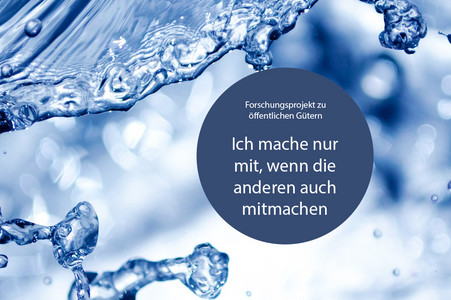Dr. Felix Kölle, research associate at the Faculty of Management, Economics and Social Science at the University of Cologne, and his team raised the question how the principle of reciprocity (“Tit for tat”) affects public goods. In a test series the study participants (sample size n=876) were asked to whether go easy on a resource (maintenance of public goods) or to create a new resource (creation of public goods). The care about natural resources like water, limited CO2-Emissions or biodiversity are examples for the maintenance. Political engagement, donations or voluntary work are examples for the creation.
The willingness of the study participants to create a public good was stronger than willingness to care about an existing one. “Our results correspond with the observation that our society judges the exploitation of a public goods less sharp as the refusal to contribute to public goods”, classifies Felix Kölle the results around the research topic of “Economics: Design and Behaviour”.
Two different types of cooperation could be identified by the researchers. The first type, conditional cooperation, was a common reaction of the participants. They only had the willingness to cooperate, if the others would do as well. The second type, called free riders or also “social spongers”, never contribute to public goods, notwithstanding the above how much the others invest. If it is about the maintenance of a public good, the results show that less people are willing to cooperate conditionally and even more do not cooperate at all (free riders).
The research results suggest political efforts to more willingness to cooperativeness.
Original publication:
https://www.nature.com/articles/s41562-017-0191-5
(doi: 10.1038/s41562-017-0191-5)
Contact:
Dr. Felix Kölle
Faculty of Management, Economics and Social Science of the University of Cologne
+49 221 470-5317
felix.koelleuni-koeln.de
Public Relations:
Corinna Kielwein
+49 221 470-1700
c.kielweinverw.uni-koeln.de
Person responsible: Dr. Patrick Honecker MBA
